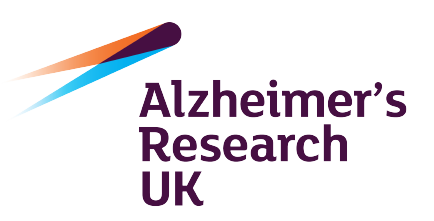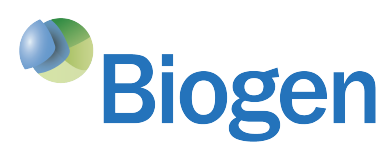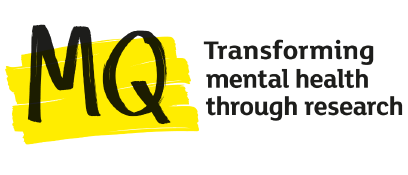Frequently Asked Questions
Apply for Funding
The Psychiatry Consortium
Frequently Asked Questions
-
Collectively, the Psychiatry Consortium members have a wealth of knowledge of drug discovery and the processes required to move a target through the early validation stages of the drug discovery pipeline. We can also help more practically, by supporting assay design and development to industrial standards or by generating tool compounds to probe biology in disease models. Additionally, we work closely with our Partner Organisations, who can enable the practical research required to move targets forward as part of the project.
-
As the Psychiatry Consortium has set up contractual and working relationships with the Partner Organisations, we will work exclusively with them during the due diligence phase of the review process, and it would be preferable for us to work with them throughout the project lifecycle. However, if there are unique capabilities that are essential for your project, that can be provided by other CROs or organisations – we can look at this during the project development phase, in order to make the best decisions to enable success on a project-by-project basis.
-
Where relevant, we want to leverage access to the drug discovery capabilities of the Psychiatry Consortium Members and partners to complement and strengthen each project. However, it may be possible to deliver a project without access to those capabilities, in which case it would be reasonable to work without CRO input in those instances. Decisions to include/exclude CRO support would be based on the science required and the capabilities needed to support that science.
-
The PI is key in setting the initial direction of the project and providing the scientific expertise throughout. We are looking to work collaboratively to complement the scientific expertise of any given academic centre with our capabilities – we hope to work synergistically to leverage expertise across all the organisations involved. MDC will provide the day to day support to deliver and manage projects, but the academic PI input is essential in the science and design of projects.
Scope
-
Absolutely – the scheme is open to applicants worldwide.
-
No – dementia targets are out of scope, however, targets to address psychiatric symptoms associated with dementia will be considered. A full list of mental health conditions that we are interested in funding can be found in our Terms and Conditions, section 1b.
-
Proposals must be supported by robust evidence linking the molecular target to human disease and of the target modulation having a therapeutic effect, which can be further developed or validated. For example, evidence could include;
- Robust genetic association with risk for diseases of interest (e.g. from GWAS or rare variant association)
- Robust human data, generated either clinically or preclinically (e.g. human IPSC cell models), showing the target of interest is expressed in the human brain and specifically located in a circuit/pathway known to mediate a phenotype that is relevant to mental health disorders (e.g. the orexin system in which the orexin receptors, OX1 and OX2, mediate arousal and humans with loss of function of OX2 exhibit a pronounced lack of arousal phenotype- narcolepsy)
- Evidence from animal models may be accepted if that evidence suggests modulation of a well-known pathway or circuit in the human condition
-
We are primarily looking to fund studies on targets that are either new or not ‘well studied’, i.e. new molecular targets that have not been taken through translational drug discovery programmes and exploited in the clinic. Targets with initial studies linking the molecular target to a human disease*, and evidence of potential translation would be welcome, with the intention that this scheme would support the development or validation of this early evidence.
*Note this evidence must be sourced from human studies and cannot be from animal/cellular models alone.
-
We will not fund studies that look to repurpose existing drugs, however, we will consider studies that use existing drugs as a tool for validating new molecular targets.
-
Target identification studies are in scope, providing there is a clear link to a human psychiatric condition. Proposals should include a clear plan for prioritisation of targets identified. Early target identification studies without a proposed target (i.e. projects that are mostly characterization and/or hypothesis-generating studies) will not be considered.
-
No. The Psychiatry Consortium will not fund clinical trials, or human studies intended to generate samples for further testing. The analysis of biomarkers, derived from a patient study, would be in scope, providing it was intended to lead to the identification of novel targets. It would be expected however that the patient samples would be a resource that the PI would bring to the project, as the Psychiatry Consortium will not fund clinical studies in order to prospectively collect any samples.
-
Visit our ‘Portfolio’ page to view live projects.
We are particularly interested in targets that are supported by robust evidence linking them to psychiatric disorders in humans.
Application process
-
No – the final call for applications will close in December 2022.
-
The application form is available to view on our application portal. If you have any questions, please get in touch with us via the ‘Contact us’ page.
-
To be fair to all applicants, we cannot provide specific feedback, unless in the context of a full scope assessment of a submitted application. For general enquiries related to the Terms and Conditions, please get in touch using the contact form.
-
No. At this point, we are looking for a high-level proposal which will be assessed primarily on scientific merit. If a proposal is deemed to be in scope, it will progress to the next stage, during which the Programme Manager and Partners will conduct initial due diligence to assess the novelty and feasibility of the target. Eligible proposals will be submitted to the Scientific Committee for consideration, after which a high-level project and financial plan will be developed in collaboration with the Programme Manager, partner organisations and PI with input from the Psychiatry Consortium members.
-
No. Eligible proposals will be taken to the Partners once due diligence has been undertaken. If a proposal secures an expression of interest from the Psychiatry Consortium members, we will notify the PI as soon as possible. We do not expect applicants to have had preliminary discussions with any Partners prior to applying, and we will follow the pre-defined review process regardless of whether applicants have existing relationships with any of the Partners.
-
No – the Psychiatry Consortium is a new model of collaborative research, intended to provide access to drug discovery expertise and capabilities and connect researchers with the expertise needed to progress their research idea. If a proposal is selected to progress to project development, MDC will work with the PI and Psychiatry Consortium partner organisations to develop a project plan, considering the tools and facilities required to progress the project. We will work with you to identify the most appropriate sources of support, which may be in your own institution, within the Psychiatry Consortium, or elsewhere.
-
Yes. Please submit 1 application per project.
-
As there is a limited word count in the application form, there is no need to add a bibliography of references. You may cite papers as (Author, Date – Journal) in the text if you wish.
Review process
-
Initial proposals will be reviewed by the Programme Manager, to determine whether the project is in, or out of scope. In some cases, the application form may be shared with our partner organisations to provide further insights on the novelty of the target and its viability for R&D purposes. Applications that are deemed to be in scope will be submitted to the Psychiatry Consortium Scientific Committee to identify those which may eligible for funding.
All information, including any personal data, submitted to the Psychiatry Consortium will only be used for the processing of and communication regarding the application, as described in sections 3 and 4 of the Terms and Conditions.
All information, including any personal data, will be processed, stored, shared and retained securely and in accordance with the Psychiatry Consortium data privacy notice.
Applicants should refer to the Psychiatry Consortium data privacy notice for more details on processing, storage, sharing and retention of personal data.
-
We aim to reply within one month of the call deadline to inform you whether your application has been deemed in or out of scope.
-
Given the time needed for extended discussions and contractual arrangements during the project development period, we expect the time frames between confirmation of scope and project initiation to vary greatly. We hope projects that are successful will start around 4 months after the deadline for applications.
Funding
-
The total eligible funding can be between £150,000 to £1,000,000, depending on the specific requirements of each project, and the number of funding partners.
The Psychiatry Consortium will cover 100% of eligible direct research costs associated with the project, including, for example, research funding for assay development, screening and medicinal/biopharmaceutical chemistry resources required to develop novel chemistry against the target, and salary support for the applicant themselves or for research staff as appropriate. This applies for both applications from academic institutions and SMEs.
The Psychiatry Consortium will not fund indirect costs, such as non-specific estimated costs, including estates costs, library costs, finance, legal and HR costs.
Exploitation of results and intellectual property
-
The Psychiatry Consortium offers a model for academics to leverage expertise from commercial organisations but also, potentially, to accelerate commercialisation of their research.
The Psychiatry Consortium provides focussed project funding to enable robust validation and go/no-go decisions on new potential targets for psychiatric diseases. The purpose is to “mobilise” new research ideas and potential drug discovery assets in the academic pipeline, so that those with commercial value can be fast-tracked to commercial organisations (i.e. the Psychiatry Consortium Funding Partners) that could, in principle, provide the level of investment required to take them forward.
-
Successful applicants will enter into a separate Project Collaboration Agreement between the applicant’s host institution and MDC (acting as the Managing Partner on behalf of the Funding Partners), in which ownership and licensing terms of any results generated during the project will be detailed. The institution would be granted;
- ownership of all results, IP and any novel chemistry generated during the project;
- the opportunity to negotiate a commercial license for any novel chemistry (and any IP therein) with the Funding Partner(s), if the Funding Partner(s) want to exercise an option to license;
- If the Funding Partner(s) do not want to negotiate a commercial licence, the institution is free to exploit licensable IP as they see fit.
Further details of the IP conditions can be found in the Terms and Conditions
-
The Funding Partners of the Psychiatry Consortium will be granted;
- an exclusive license to the results and IP included in the results for all purposes;
- a non-exclusive license to background IP, for the purpose of using the results;
- the option to negotiate an exclusive or co-exclusive (in the event of more than one Funding Partner), sub-licensable commercial licence to any novel chemistry, and any IP therein, generated during the project
Further details of the IP conditions can be found in the Terms and Conditions.
Regardless of the above entitlements of the Partner’s, the applicant will own the results, IP and the chemistry.
















